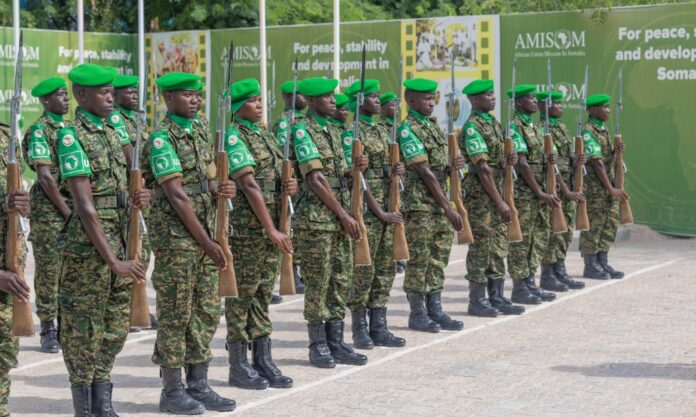ADDIS ABABA (KAAB TV) – The African Union (AU) has announced the establishment of a new mission in Somalia, the African Union Support and Stabilization Mission in Somalia (AUSSOM), to replace the outgoing African Union Transition Mission in Somalia (ATMIS).
This decision was made during the Peace and Security Council’s 1225th meeting on August 1, 2024, as part of the AU’s continued efforts to stabilize Somalia after nearly two decades of military presence in the country.
ATMIS, which was itself the successor to the African Union Mission in Somalia (AMISOM), has been in operation since 2022, following the reconfiguration of AMISOM.
AMISOM, launched in 2007, was primarily tasked with combating the Al-Shabaab militant group and supporting the Somali government. Despite its significant efforts, AMISOM struggled to achieve full security in Somalia, largely due to the persistent threat of Al-Shabaab, widespread corruption, and internal clan rivalry within Somalia’s security forces.
The international community, particularly the European Union (EU) and the United Nations (UN), which have been major financial backers of the mission, have increasingly sought an exit strategy.
The financial burden of maintaining the world’s most expensive peacekeeping mission has been exacerbated by global crises, such as the ongoing war in Ukraine and the recent conflict in Gaza. These factors have led to a push for the withdrawal of African forces from Somalia, culminating in the planned complete withdrawal of ATMIS by December 2024.
However, as ATMIS began its phased drawdown two years ago, it became evident that the Somali National Army (SNA) was unprepared to take over the country’s security responsibilities.
Reports from military sources in Mogadishu indicate that the SNA has been severely weakened by massive corruption, including the theft of weapons and food supplies, as well as clan-based influences within the army.
This has led to the near collapse of the Somali security forces, with hundreds of soldiers reportedly defecting to clan militias in central Somalia, Mogadishu, Lower Shabelle, and Middle Shabelle after going unpaid.
In light of these challenges, the AU’s decision to replace ATMIS with AUSSOM in 2025 has been met with skepticism.
Many observers view the move as an attempt to save face by simply rebranding the mission rather than addressing the underlying issues. One of the key challenges facing AUSSOM is the involvement of Egypt, a non-contributor to the AU mission in Somalia, but has now offered to join the AUSSOM mission.
Egypt’s participation is controversial, given its strained relations with Ethiopia due to the Nile dispute. Ethiopia is currently a major troop-contributing country to the AU mission and Somalia’s neighbor.
Furthermore, the AU faces the daunting task of securing funding for AUSSOM. According to the AU Peace and Security Council’s statement, the organization will approach the UN, EU, and other potential donors, including the United States and the United Kingdom, for financial support in September 2024.
“The Peace and Security Council requests the AU Commission to continue extensive engagements with the UN, European Union and all strategic partners to ensure adequate, predictable and sustainable funding and other forms of support, to fill the financial gaps, for the AUSSOM and to report back to Council by September 2024 on potential additional sources of funding,” the statement noted.
The willingness of these international partners to continue funding the mission is uncertain, especially given their past concerns and the current global economic climate. According to diplomatic sources, a measurable result and a realistic timeframe must be presented to keep the discussion on the table.
As the transition from ATMIS to AUSSOM looms, the AU must navigate these complex political and financial landscapes to ensure that its efforts in Somalia do not unravel.
Regardless of whether funding is provided, foreign troops alone cannot secure Somalia. The success of AUSSOM depends on the Somalis’ ability to address the root causes of instability and eliminate the rampant corruption that has hindered the country’s progress and strengthened extremist groups.
The international community can play a crucial role by pushing for transparent governance and tackling corrupt politicians.


